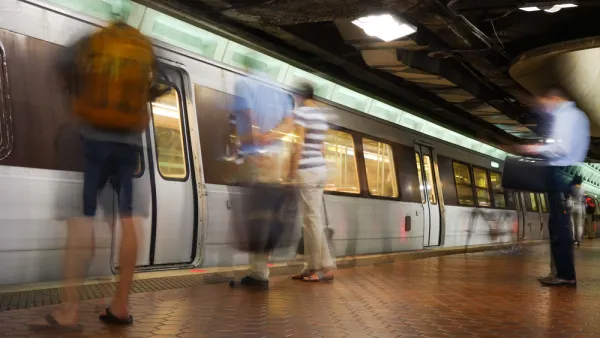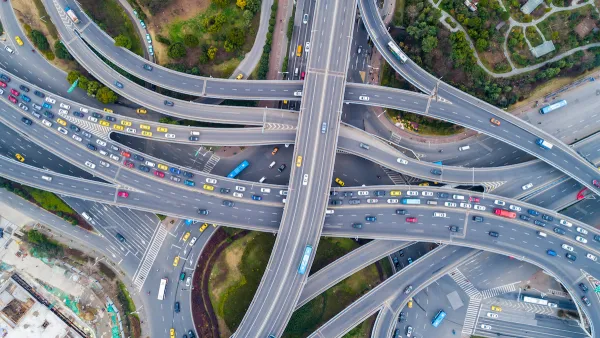Reflecting on the significance and impact of Superstorm Sandy, Bill McKibben and Lawrence J. Hanley propose a 3-step process focused on mass transit that America should pursue to promote community development, public health and the environment.
For McKibben and Hanley, Hurricane Sandy has made it clear that politicians can no longer push climate change under the rug. Climate change contributes to rising sea levels and record heat waves, and the implications of these phenomenon are more apparent that ever before. For one significant place to tackle carbon emissions, they point to the transportation sector, and its role in contributing to 27 percent of total U.S. greenhouse gas emissions. That's not the only way in which our auto-reliant lifestyles are harming the country. "The transport sector," they say, "contributes 80 percent of the harmful air pollutants that cause 1.3 million premature deaths each year. Road fatalities claim 33,000 lives per year on average, making traffic accidents the number one killer of people under 34 in the U.S. And traffic congestion is known to elevate stress levels and reduce quality of life for millions."
On the other hand, explain McKibben and Hanley, data from a recent poll conducted by the Natural Resources Defense Council suggests that Americans are ready and willing to use public transportation and that they want to be less car dependent. However, they are often confronted with obstacles including what many believe are "outdated, unreliable and inefficient" public transportation systems across the country. The 3-steps they propose to address these matters includes: (1) stopping the budget cuts on public transit, (2) redirecting federal investments to expand and improve transit systems, and (3) making transit free or less costly by reallocating fossil fuel subsidies.
In conclusion, they warn that Hurricane Sandy was a “harbinger of what the future will bring” with continued global warming, and articulately state that “[w]hen Sandy flooded New York's subways, it brought the city to a halt. Re-opening the system was a challenge -- but the real challenge is bringing mass transit to a nation that very much wants it.”
FULL STORY: Think About the Transportation Sector

Analysis: Cybertruck Fatality Rate Far Exceeds That of Ford Pinto
The Tesla Cybertruck was recalled seven times last year.

National Parks Layoffs Will Cause Communities to Lose Billions
Thousands of essential park workers were laid off this week, just before the busy spring break season.

Retro-silient?: America’s First “Eco-burb,” The Woodlands Turns 50
A master-planned community north of Houston offers lessons on green infrastructure and resilient design, but falls short of its founder’s lofty affordability and walkability goals.

Test News Post 1
This is a summary

Analysis: Cybertruck Fatality Rate Far Exceeds That of Ford Pinto
The Tesla Cybertruck was recalled seven times last year.

Test News Headline 46
Test for the image on the front page.
Urban Design for Planners 1: Software Tools
This six-course series explores essential urban design concepts using open source software and equips planners with the tools they need to participate fully in the urban design process.
Planning for Universal Design
Learn the tools for implementing Universal Design in planning regulations.
EMC Planning Group, Inc.
Planetizen
Planetizen
Mpact (formerly Rail~Volution)
Great Falls Development Authority, Inc.
HUDs Office of Policy Development and Research
NYU Wagner Graduate School of Public Service



























